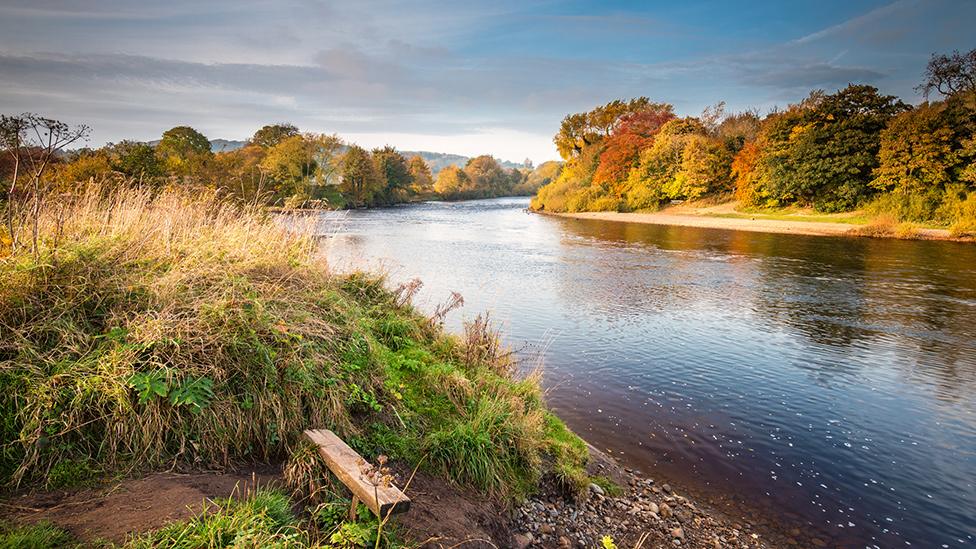Call for action over road run-off pollution hitting English rivers
- Published
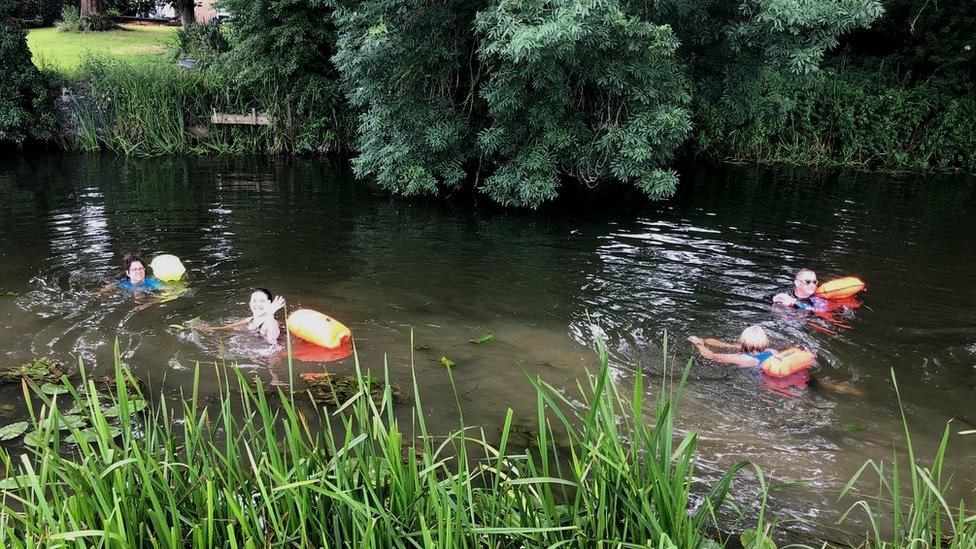
Gill Barlow said open water swimming in Northamptonshire had grown and grown during the lockdown
Action is needed to stop pollution of English rivers by road run-off, an environmental campaigner warned.
The call came as more people have started swimming in rivers during the Covid-19 lockdown.
Jo Bradley, who worked at the Environment Agency for 20 years, said more funding was needed for measures to prevent contamination of waterways.
A government spokeswoman said it was working on a "range of interventions to tackle the sources of pollution".
In 2016, when Environment Agency figures were last published, only 16% of rivers, lakes and streams were classed as good.
'Tax tyre sales'
Ms Bradley, of the Stormwater Shepherds group, said tiny bits of tyre rubber, metals from brake pads and a group of hydrocarbons from emissions wash off the tarmac and into rivers.
She added that as well as hitting wildlife some hydrocarbons, such as benzo[a]pyrene, may cause cancer, and she said more needed to be done, such as introducing roadside filter drains, grit separators and storm-water filters.
"We need a funding mechanism to allow local authorities and highways authorities to introduce treatment systems," she said.
"There are a number of recognised and proven treatment devices to capture a proportion of the pollution in road run-off.
"So government should set meaningful targets for Highways England to install these devices at polluting outfalls more quickly."
She said the money could be raised by putting a levy on tyre sales or an extra charge on council tax.
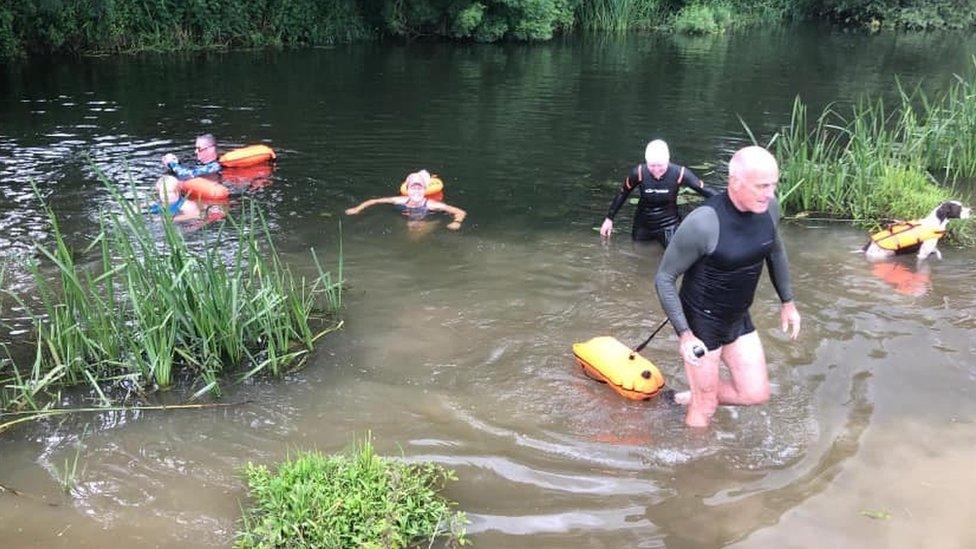
The River Nene, which crosses Northamptonshire and Cambridgeshire before entering the sea in Lincolnshire, has been rated poor for water quality
The NASA (Northampton And Surrounding Areas) Wild Swimmers group said it had recruited more than 1,000 members since it started in August, between the first and second lockdowns.
They mostly use the Nene and Great Ouse rivers, and open water locations in Sywell, Daventry and Castle Ashby.
One of its members, Abigail, said: "I think there is a need for action. As much as we want to make it safe for humans, we want to make it safe for the animals and wildlife that use the rivers."
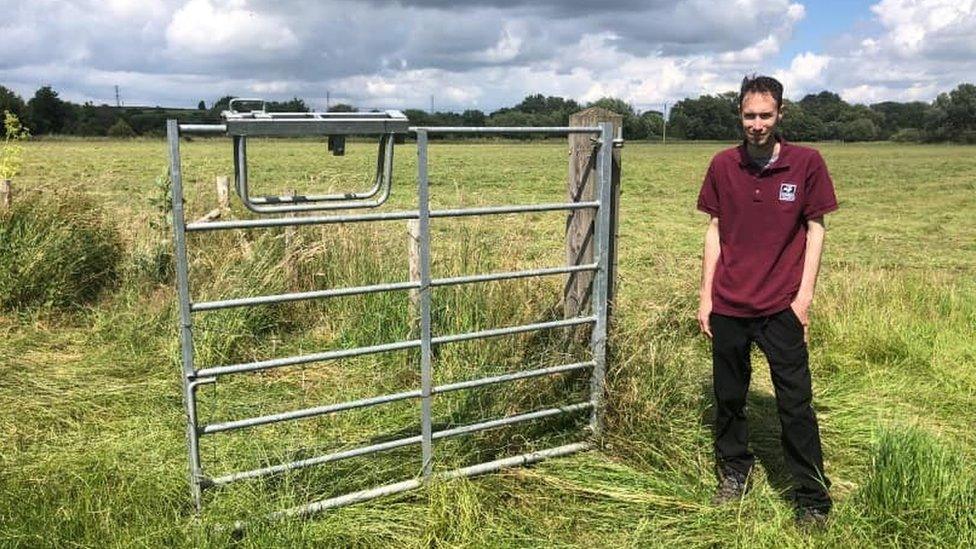
Matt Johnson, conservation operations manager with the Northamptonshire Wildlife Trust, said meadows were helping protect waterways
Matt Johnson, conservation operations manager with the Northamptonshire Wildlife Trust, said they had created meadows to act as a natural buffer to protect waterways.
He said meadows stopped flooding elsewhere, attracted pollinators, stored carbon and filtered out some pollutants before they reached the water.
"On a small scale [it] is working very well," he said.
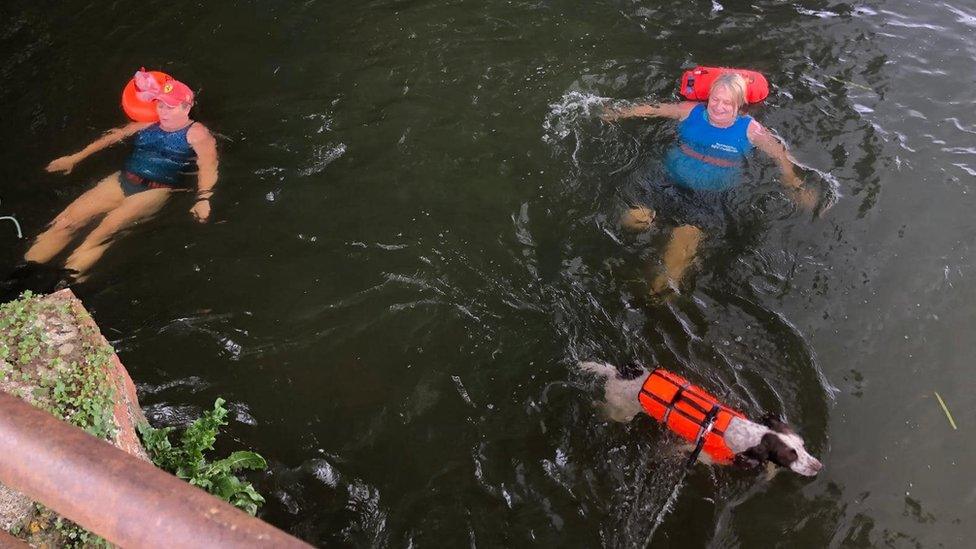
The Department for Environment, Food and Rural Affairs said making sure rivers are clean is an "absolute priority"
A Department for Environment, Food and Rural Affairs spokeswoman said: "Making sure we have clean rivers is an absolute priority and we are working urgently to reduce the environmental impacts of all sources of pollution - including those from agricultural practices and road run-off.
"There are specific regulations in place in England to protect our rivers.
"We are aware there is more work to do in the East - and we are hard at work alongside our key catchment partners to implement a range of interventions to tackle the sources of pollution in our rivers."
Politics East airs on BBC One in the East on Sunday, 11 July at 10:00 BST and can be viewed on the BBC iPlayer afterwards.

Find BBC News: East of England on Facebook, external, Instagram, external and Twitter, external. If you have a story suggestion email eastofenglandnews@bbc.co.uk, external
- Published23 February 2021
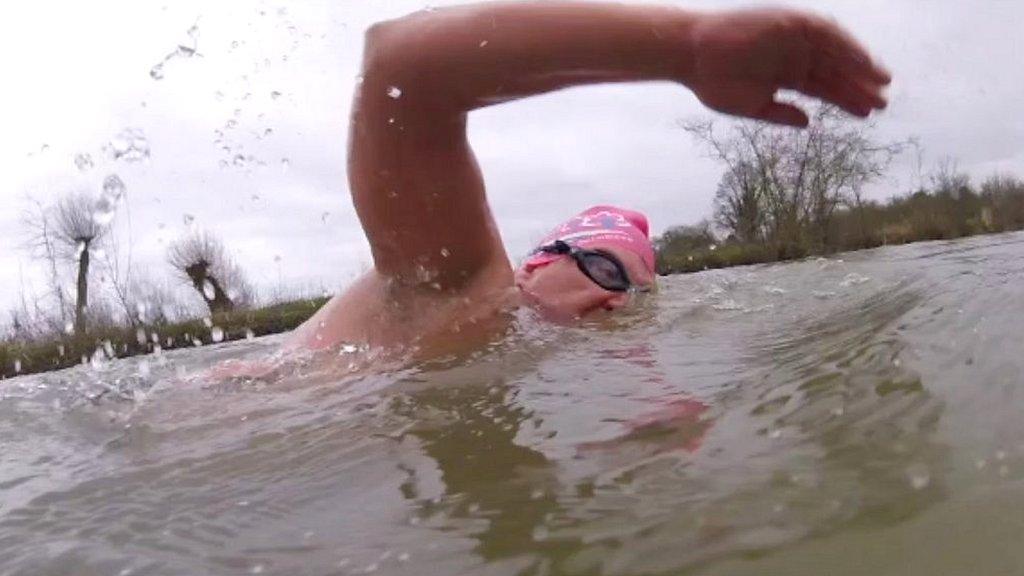
- Published4 June 2021
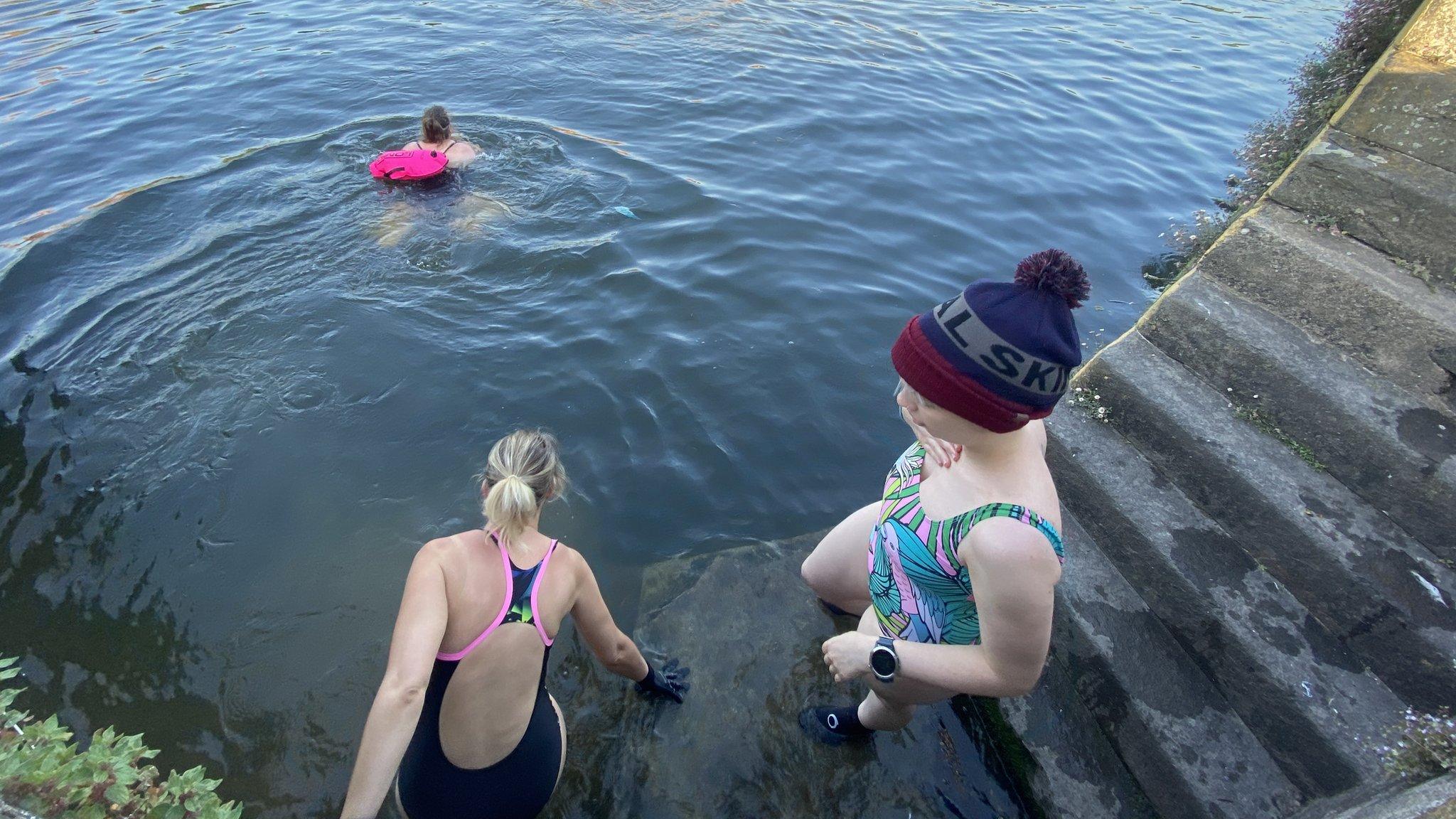
- Published17 September 2020
